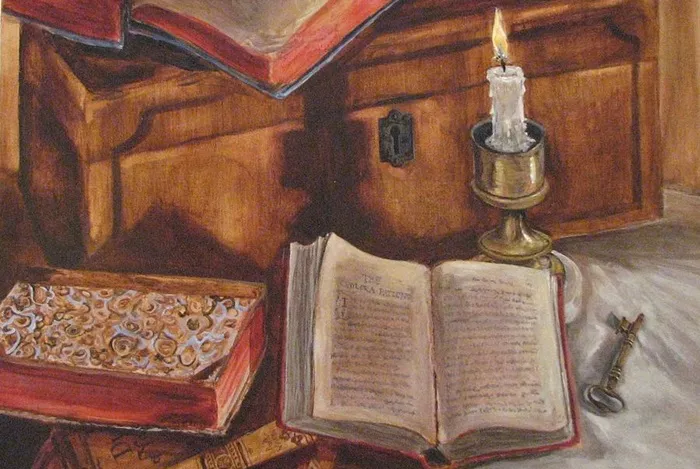Welcome to Poem of the Day – L’Allegro by John Milton.
On The University Carrier is a poem by John Milton, one of the most influential poets of the 17th century. Written in his early years, this poem belongs to Milton’s collection of minor poems and reflects both his wit and his understanding of the human condition. The poem is a satirical take on the figure of the university carrier, who was responsible for transporting goods to and from the University of Cambridge, where Milton studied. Through a light-hearted and playful tone, Milton explores the intersection of physical labor and intellectual life, offering a critique of social class and human ambition.
On The University Carrier Poem Explanation
The poem is directed toward a particular university carrier, someone who Milton likely encountered during his time at Cambridge. Milton humorously addresses the carrier, describing his physicality and his work, while also reflecting on the carrier’s place within the broader social context. Through satire, Milton comments on the disparities between intellectual work and manual labor, as well as the social hierarchy that often places physical laborers in subordinate positions.
In the poem, Milton contrasts the intellectual work of scholars with the manual labor of the carrier, who is depicted as overworked, weary, and unable to escape the burden of his job. However, this portrayal is not simply a critique of the carrier’s life; rather, Milton uses the figure of the carrier to illustrate the broader themes of human existence, such as the futility of ambition, the struggles of daily life, and the constant pursuit of recognition.
Structure and Form
On The University Carrier is written in rhymed couplets, a form typical of much of John Milton’s early poetry. Rhymed couplets, where two consecutive lines rhyme, give the poem a rhythmic and flowing quality. The steady, predictable rhythm enhances the satirical nature of the poem, making the carrier’s condition seem almost absurdly humorous despite the deeper themes of hardship it represents.
The meter of the poem is iambic pentameter, the same meter Milton would later use in his epic Paradise Lost. Iambic pentameter consists of five pairs of unstressed and stressed syllables per line, lending a formal, dignified rhythm to the poem. The form and meter contribute to the ironic contrast between the light tone of the poem and the serious social critique it conveys.
Detailed Explanation of Major Elements
Imagery:
Milton uses vivid imagery to create a picture of the university carrier’s physical state and the burdens he bears. The carrier is described as “a poor, fat, lazy man,” which invokes a sense of weariness, sluggishness, and a life spent toiling away. The imagery of physical weight—both in terms of the carrier’s body and his labor—highlights the disparity between intellectual and manual labor.
The university carrier, despite his hard work, is presented as someone caught in an endless cycle of labor, his work seemingly never-ending. This imagery serves as a commentary on the nature of physical toil and the way in which it can weigh down individuals, making it difficult for them to escape their circumstances.
Tone:
The tone of On The University Carrier is light, satirical, and humorous. Milton adopts a playful attitude as he describes the carrier’s struggles, yet there is an underlying seriousness to the commentary. The humor serves to make the serious themes more palatable to the reader, while also emphasizing the absurdity of the situation. Through this tone, Milton critiques not only the specific carrier’s life but also the broader social structures that assign value to different forms of labor.
Symbolism:
The carrier in the poem serves as a symbol for the lower classes, those whose labor is often unrecognized or undervalued by society. Despite the fact that the carrier performs essential work for the university, he is depicted as overworked and underappreciated, reflecting the inequalities within society.
The university carrier is also symbolic of the tension between intellectual and physical labor. While the university represents the pursuit of knowledge and intellectual achievement, the carrier’s role emphasizes the necessary, yet often overlooked, physical labor that supports such endeavors. This contrast serves as a critique of the social system that elevates intellectual pursuits while diminishing the value of physical labor.
Theme:
The main themes in On The University Carrier revolve around the social division of labor, the tension between physical and intellectual work, and the human condition. Milton critiques the social system that separates and often elevates intellectual pursuits while disregarding manual labor. Through the figure of the university carrier, the poem explores the idea that both forms of labor are necessary for society to function, yet one is often devalued in comparison to the other.
The poem also touches on the theme of human suffering and the burdens individuals bear. The carrier’s work is endless, and despite his hard labor, he is not rewarded or celebrated. This reflects the broader theme of the futility of human ambition—no matter how hard one works, life’s struggles often seem insurmountable, and recognition is elusive.
Conclusion
John Milton’s On The University Carrier is a witty and satirical poem that offers a critique of the social hierarchy and the unequal valuation of labor. Through the character of the university carrier, Milton raises important questions about the nature of work, class, and the human condition. The poem’s playful tone and use of imagery contrast with its deeper social commentary, making it both entertaining and thought-provoking. Ultimately, the poem challenges readers to reconsider the value of different kinds of work and to reflect on the burdens that all people, regardless of their social position, must bear in life.

